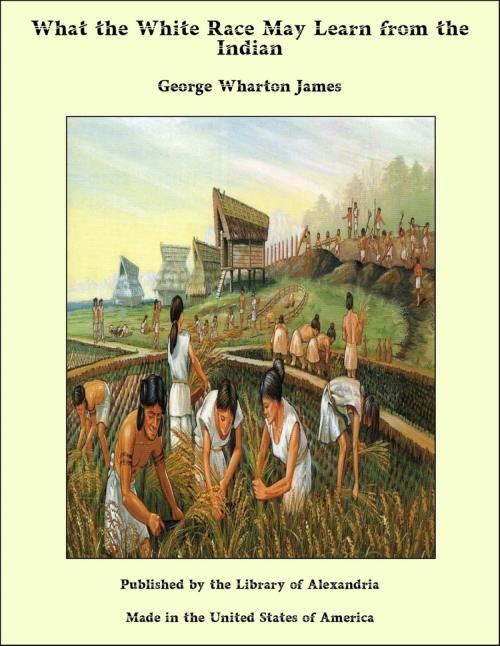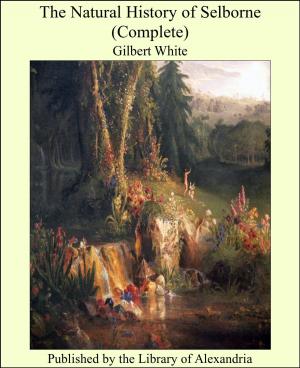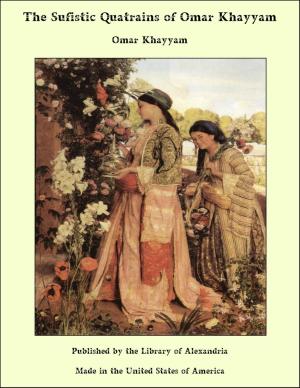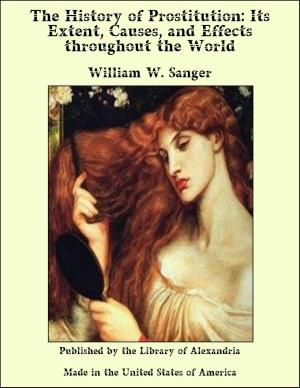What the White Race May Learn from the Indian
Nonfiction, Religion & Spirituality, New Age, History, Fiction & Literature| Author: | George Wharton James | ISBN: | 9781465612557 |
| Publisher: | Library of Alexandria | Publication: | March 8, 2015 |
| Imprint: | Language: | English |
| Author: | George Wharton James |
| ISBN: | 9781465612557 |
| Publisher: | Library of Alexandria |
| Publication: | March 8, 2015 |
| Imprint: | |
| Language: | English |
EVER since the white race has been in power on the American continent it has regarded the Indian race—and by this I mean all the aboriginal people found here—as its inferiors in every regard. And little by little upon this hypothesis have grown up various sentiments and aphorisms which have so controlled the actions of men who never see below the surface of things, and who have no thought power of their own, that our national literature has become impregnated with the fiendish conception that “the only good Indian is the dead Indian.” The exploits of a certain class of scouts and Indian-hunters have been lauded in books without number, so that even schoolboys are found each year running away west, each with a belt of cartridges around his waist and a revolver in his hip pocket, for the purpose of hunting Indians. Good men and women, people of the highest character, are found to be possessed of an antipathy towards the Indian that is neither moral nor christian. Men of the highest integrity in ordinary affairs will argue forcefully and with an apparent confidence in the justice of their plea that the Indian has no rights in this country that we are bound to respect. They are here merely on sufferance, and whatever the United States government does for them is pure and disinterested philanthropy, for which the Indian should be only grateful and humble. To me this is a damnable state of affairs. If prior possession entitles one to any right in land, then the Indian owns the land of the United States by prior right. The so-called argument that because the Indian is not wisely using the land, and that therefore he stands in the way of progress and must be removed, and further, that we, the people of the United States, are the providentially appointed instruments for that removal, is to me so sophistical, so manifestly insincere, so horribly cruel, that I have little patience either to listen or reply to it. If this be true, what about the vast holders of land whom our laws cherish and protect? Are they holding the land for useful and good purposes? Are they “helping on the cause of civilization” by their merciless and grasping control of the millions of acres they have generally so unlawfully and immorally secured? Thousands, nay millions, of acres are held by comparatively few men, without one thought for the common good. The only idea in the minds of these men is the selfish one: “What can I make out of it?” Let us be honest with ourselves and call things by their proper names in our treatment of the weaker race. If the Indian is in the way and we are determined to take his land from him, let us at least be manly enough to recognize ourselves as thieves and robbers, and do the act as the old barons of Europe used to do it, by force of arms, fairly and cheerfully: “You have these broad acres: I want them. I challenge you to hold them: to the victor belongs the spoils.” Then the joust began. And he who was the stronger gained the acres and the castle.
EVER since the white race has been in power on the American continent it has regarded the Indian race—and by this I mean all the aboriginal people found here—as its inferiors in every regard. And little by little upon this hypothesis have grown up various sentiments and aphorisms which have so controlled the actions of men who never see below the surface of things, and who have no thought power of their own, that our national literature has become impregnated with the fiendish conception that “the only good Indian is the dead Indian.” The exploits of a certain class of scouts and Indian-hunters have been lauded in books without number, so that even schoolboys are found each year running away west, each with a belt of cartridges around his waist and a revolver in his hip pocket, for the purpose of hunting Indians. Good men and women, people of the highest character, are found to be possessed of an antipathy towards the Indian that is neither moral nor christian. Men of the highest integrity in ordinary affairs will argue forcefully and with an apparent confidence in the justice of their plea that the Indian has no rights in this country that we are bound to respect. They are here merely on sufferance, and whatever the United States government does for them is pure and disinterested philanthropy, for which the Indian should be only grateful and humble. To me this is a damnable state of affairs. If prior possession entitles one to any right in land, then the Indian owns the land of the United States by prior right. The so-called argument that because the Indian is not wisely using the land, and that therefore he stands in the way of progress and must be removed, and further, that we, the people of the United States, are the providentially appointed instruments for that removal, is to me so sophistical, so manifestly insincere, so horribly cruel, that I have little patience either to listen or reply to it. If this be true, what about the vast holders of land whom our laws cherish and protect? Are they holding the land for useful and good purposes? Are they “helping on the cause of civilization” by their merciless and grasping control of the millions of acres they have generally so unlawfully and immorally secured? Thousands, nay millions, of acres are held by comparatively few men, without one thought for the common good. The only idea in the minds of these men is the selfish one: “What can I make out of it?” Let us be honest with ourselves and call things by their proper names in our treatment of the weaker race. If the Indian is in the way and we are determined to take his land from him, let us at least be manly enough to recognize ourselves as thieves and robbers, and do the act as the old barons of Europe used to do it, by force of arms, fairly and cheerfully: “You have these broad acres: I want them. I challenge you to hold them: to the victor belongs the spoils.” Then the joust began. And he who was the stronger gained the acres and the castle.















